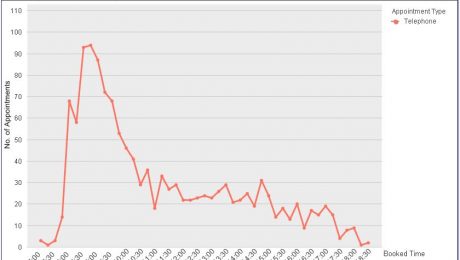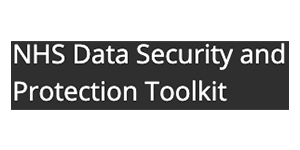How to count sheep
When I was five I used to love asking my farmer uncle how he counted his sheep. “Count the legs and divide by four” he was sure to reply, and I was sure to giggle. Thanks Ray, for the laughter and learning you sparked.
Measurement, a kind of counting with maths, is a huge part of what we do and we are always trying to make it simpler and clearer.
The simplest, most important measure in general practice is demand – by month, week, day, hour.
Then comes the service response – how fast, how soon? That’s what matters most to patients. Why isn’t anyone else doing this?
Then comes efficiency – how long does it take to deal with all those demands? That’s what matters to GPs and staff – they want a reasonable working day, and without harming patients improving efficiency is the surest way.
All these are operational measures we derive on an industrial scale with minimal effort and immediate visibility.
So It grieves me to see hundreds of £k spent on fiddly little “improvements” which make no attempt to measure benefit for patients. They trumpet thousands of hours saved – which turn out to be approximately 17 minutes per GP per week.
It grieves me to see the vast expense on poor substitutes for measures, postal surveys with small samples and smaller response rates, reported months later. Counting legs.
It grieves me to see the BMA making threats to close GP lists, unable or unwilling to frame questions of capacity in terms of efficiency.
When you make a step change in efficiency, lots more becomes possible in ways we can’t measure with numbers.
Read in Pulse how Dr Steve Edgar describes “Taking back control”, using terms like autonomy, mastery and purpose, with time for the simple team huddle.
If you’re heading to the hills this week you’re sure to see a few sheep. Yan, tan, tethera…
Regards,
Harry Longman
PS Reminder of the poster study of online consultations at Concord Medical Centre. Another step on the efficiency road.
- Published in Comment
Surfing the demand wave
Summer may be a-coming in, we will see beaches and I promised to take a look at that pattern of patient tidal flow.
GP demand is like a rolling wave. Or quite like a skijump, or one side of a volcano, but let’s stay with the wave for the purposes of surfing.
We’ve analysed hundreds of practices and when you allow patients call any time in working hours the pattern is strikingly similar across the board. The calls start high when you open at 8, stay there for a short time and from 9 fall rapidly through the morning. They flatten out through the middle of the day and early afternoon, then tail off from around four down to very little by 6.
Aha. So how to respond?
- Tidal deniers: “We hold our partnership meetings at 8.30 on a Monday morning. Works well for us as everyone is in, perfect start to the week”. If only they spent five minutes in reception.
- Tidal self harmers: “Sorry, what do you expect, it’s already 8.17 and there’s nothing left. Call back tomorrow but make it early I should to be sure of an appointment” Funny how every day is the same.
- Dudes: we’re ready, on it as the demand comes in, phone or online first response, deal with it now, decide to see some later when incoming is quieter. Stay on the wave, take a break, mentally prepare for face to faces, back for next session. It’s a full on day, but we feel in control.
Someone accused me on Twitter this week of common sense and I strenuously deny all charges, but really, is it that hard? So why do patients wait an average of 5 days to get help from their GP? And why do GPs end the day shredded?
One practice we’re working with has hit a median response time by a GP to any patient demand of 17 minutes. Within five weeks of launch. 17 minutes. Surfin’
Harry Longman
askmyGP & GP Access Ltd
PS Delighted to see that Matthew Swindells, new Director of Operations at NHS England, is starting to call out NHS111 for the monstrous waste that it is. Sad to say that it’s taken a change of personnel to admit the truth, while those four years have seen hundreds of £m wasted, never mind the frustrations for patients, GPs and staff. So will he actually do the necessary?
- Published in Comment
What’s your DNH rate?
OK, you’re forgiven for thinking I wrote DNA rate, and you were expecting to read about how to reduce Did-Not-Attends, perhaps a mix of clever texting apps and a patient blame-fest of warnings, charges and excommunication. No matter, although we have shown that DNAs are a system problem, not a patient problem, and if you change the system, DNAs disappear.
I wrote DNH meaning Did-Not-Help, the patients who are told by reception, “Sorry, nothing left, call back tomorrow. And make it on the dot of 8, I should, we’re very busy.”
No clinical systems measure this, NHS England would rather ignore it, no political party understands it or has the method or means to deal with it. The various prescriptions of “waiting time targets” or “8-8 x 7 day opening hours” aren’t based on examination of the evidence, so the diagnosis is wrong and the treatment will fail.
We collect the evidence through our Datalog audit, real time, patient by patient, we have n > 300,000 from over 200 practices, and the average rate is… 12%. Yes, it’s roughly twice as high as the average patient DNA rate, and it’s not caused by patients but by GP practices and systems. The highest we’ve measured in any practice is a staggering 31% of demand turned away.
I’ve worked with enough GPs to know that the vast majority joined the profession to help patients, so the data may come as something of a shock, but something which should move us to action. True, there’s a small but powerful minority who seem to take a different view, maximising profit by minimising service to the point where they just escape being caught.
But we are concerned with the vast majority, those working hard to provide excellent patient service. Getting GPs to work harder is a sure fire vote loser, I think you know that. So the answer is giving them the method and means so that they can work much more efficiently, dealing appropriately with all demand and feeling in control.
Our task in fulfilling the vision “to transform access to medical care” is working out ever better ways to make this happen. We know that dreaded phrase, “Call back tomorrow… ” is uttered around 100,000 times per working day in the UK and our manifesto is to eliminate it.
You will vote many times in your life. Make your vote count.
You will live only once. Make your life count.
Harry Longman
Founder, Chief Executive, GP Access Ltd
PS Exciting to report that the next little piece of that road is now in place, two way secure messaging between GPs, their staff and patients. It enables more efficient use of GP time by not always having to find phone numbers and hope for an answer. Spoke to one user yesterday who already loves it after sending 3 messages! It’s built into askmyGP Transform and Improve.
PPS as election guide I defer to the inestimable @jtweeterson
@harrylongman
- Published in Comment
4/5 hospitals need to improve. And the other one?
Couple of mornings ago I was just enjoying my porridge when the Today programme told me that four out of five hospitals need to improve! Spluttering, I had to leave the porridge to cool while I took to Twitter.
No, it’s not the four I’m worried about, but the other one which presumably thinks it doesn’t need to improve. All of us need to improve – companies large and small, hospitals, GPs, parish councils and governments. A minute later Radio 4 was telling us that 2/3 police forces were performing well while 1/3 weren’t. Utter nonsense.
The real scandal is not the hospitals, or the police forces, but the thinking which labels performance as binary good/bad, pass/fail, and it’s this system of rating which infects government from top to bottom. People moan about CQC for its charges, its bureaucracy and bother, but the heart of the evil it spreads is the way that it rates its victims.
Measurement is crucial to improvement, but it matters what you measure and how. The best place to start is with what matters most to patients, and if you don’t know, think about the last time you wanted help from your GP. Yes, it’s how fast you can get help. Not the only thing that matters by any means, but you’d have thought that at least the multi £million CQC would have realised.
Recently we’ve produced datasets for two practices, one labelled by CQC as “good” and the other “inadequate”. It’s clear from the former that patients are being turned away almost all day from 8.45, and are struggling to make appointments. The latter, while ticked off for records on staff checks and vaccines, has a policy of never turning patients away, and it’s clear from their data that they don’t, accepting calls right up to closing time.
Do you want a tick box culture in general practice, or one with a passion for patient service at its heart? I know what I want, and if the government wants it then nothing short of a total rethink of CQC will get there.
Harry Longman
- Published in Comment
Dear Mrs May
I wrote last week to Mr Hunt and sat by the phone all weekend, but it appears ministers are not offering a proper out of hours response so I have little choice but to go direct to Emergency PMQs.
Your headlines: “a large number of surgeries are not providing proper out of hours care – and patients are suffering as a result because they are then forced to go to A&E.”
GPs have a contract since 2004, mostly GMS or PMS, which defines their core hours. Simply saying you don’t like it really won’t do. The Telegraph has “Under Mrs May’s plans, GPs will have to be open from 8am to 8pm every day of the week unless they can prove there is not demand in their catchment area.”
We’ve been measuring demand for over five years and I can assure you there is always demand, but we do need a higher level of understanding from our PM, well intentioned and intelligent as you are. Demand out of hours is predictable and perhaps surprisingly low, but covered by out of hours services (as provided for in the 2004 contract).
But you are confusing demand with capacity. We know precisely the profile of demand, by day, by hour, even by minute, we know what is in and out of hours. We also know that spreading the same capacity over longer hours will cut that capacity and increase costs. When Sir Amyas Morse states “They are seeking to improve access despite not having evaluated the cost- effectiveness of their proposals and without having consistently provided value for money from the existing services.” it is well worth listening. His NAO report says extended hours GP costs are 50% higher than core hours. I’ve seen evidence that the true ratio is closer to three times.
Ignoring the evidence you have deeply upset GPs and confirmed the view of many that they are being bashed. I could call this counterproductive but the language you’ll hear over the next few days is going to put such bland terminology in the shade.
I do more data nerdy stuff than emotions, but I want to finish on a note of hope and if you’re prepared to listen, read one thing. Dr Philip Lusty was exhausted and beaten, along with all his colleagues and staff, as I personally witnessed. Now read what happened.
Yours sincerely,
Harry Longman
- Published in Comment
Dear Mr Hunt
You told parliament yesterday that it was time for “an honest conversation with the public about their use of A&E“. Are you up for one too, as Secretary of State?
Unfortunately there is no evidence of honest conversations, cajoling, beating or any other persuasive endeavour having the slightest effect on patient behaviour in seeking healthcare. You may even be stoking demand simply by talking about it (as the Behavioural Insights Team has shown.) Dr Taj Hassan is spot on when he says it’s about the system. As Deming said, 95% of the problem is the system, and that’s where leaders spend their efforts.
You’re fiddling with four hour targets, and the language of targets, but Deming said 35 years ago, “numerical targets must be eliminated”, tellingly calling his book “Out of the Crisis.” It wasn’t until 1992 and after mental torment over what this meant that I personally got it. Well, the next principle is to eliminate exhortations…
It’s crucial to understand the difference between targets and measures, and to Deming (a statistician) measures were absolutely critical. It matters to patients how soon they are seen Mr Hunt, and therefore it must matter to you and all NHS staff: measure the times, the demands and the flow in A&E and strive continually to improve them.
You’ll be asking me how in a minute, but look, read Simon Dodds on how they did it in Luton and Dunstable hospital. There’s a very simple parallel to what they did and our work in primary care: put the senior clinician at the front of the house where the demand comes in. It saves time for the senior clinicians and saves time for everyone else.
I spent yesterday in Riverside Practice, Portadown, NI, on the day they launched their new system. Patients reported an average 39 minutes to be in touch with their GP. 81% said the new system was better. The GPs said it had gone much better than expected, and when they’d cleared the decks, most of them went home early. Someone please pass this on to Helen Stokes-Lampard who is threatening us with 4 week waits.
Wonderful stories came throughout the day. The man who got the GP call in the library. The woman who broke the new rules, turning up in the surgery without calling, but with agonising back pain. She saw the doctor within minutes. Any healthcare system which doesn’t have compassion at its heart is worthless.
Riverside GP has gone from having one of the worst access records in NI to one of the best, overnight. OK, so the preparation took four weeks. OK, so it took a year for the GPs to overcome their fear of change. But they changed overnight.
Leave aside political shocks for a minute, there’s a medical earthquake happening in NI right now, standing primary care the right way up.
It’s such a dreadful shame that NHS England is missing out, but I’m sitting by the phone Mr Hunt.
Yours sincerely,
Harry Longman
- Published in Comment
NHS crisis and cognitive dissonance
So the Red Cross tells us there’s a humanitarian crisis in our NHS hospitals and ambulance services. What reactions does that trigger in your mind?
This is the same Red Cross which is helping those left alive flee the ruins of Aleppo, and in context I don’t know about you but I have a problem with that language. I don’t mean to shrug “Crisis, what crisis?” but the point is that it is so easy to make headlines by building on public perceptions and so hard to challenge them.
Many players within the NHS ecosystem and media thrive on continual crisis but strangely it doesn’t help us to measure, analyse, reflect and redesign. We are addicted to firefighting.
Now I want to raise the subject of cognitive dissonance. If you haven’t yet read Matthew Syed’s “Black Box Thinking” then I urge you to do so: well written, engaging and with a powerful message. (the subtitle about marginal gains doesn’t do it justice. It’s much more about learning from failure).
I’ll declare an emotional “COI” here in that aviation comes out much more favourably than healthcare, and some decades ago I was a tiny cog in the industry at Rolls-Royce aero engines. The difference centres around attitudes to failure: forensic analysis, learning and rapid dissemination in aviation, versus cover up in health. Doctors have admitted to me that that’s a huge fear of failure in medicine, but the problem as Syed so eloquently puts it is that failure happens continually and repeatedly. Aviation by contrast is very open, and very safe.
I’ve talked for some time about the primal fears which keep GPs from change, impenetrable to evidence. But perhaps I’m wrong, it’s more the gap between beliefs about current practice and what we imagine we might have to do – cognitive dissonance.
Does reframing the problem make it any easier to solve? Your thoughts gratefully received.
Harry Longman
PS Counter that crisis thinking with this US doctor’s experience of the NHS as a patient. We must count our blessings vs USA never mind Syria.
- Published in Comment
Christmas Peace Dividend
Method: Telephone GP practice between 11am and midday today 23/12/16 and ask receptionist how busy they are, compared with an average Friday.
Sample: 10 practices throughout UK, 6 England, 2 NI, 1 Scotland, 1 Wales, mix of urban/rural/socio-economic populations. All operate a demand led system, GP telephone response, no pre-booked face to face appts.
Results: 2 say about normal, 2 somewhat quieter, 6 much quieter.
Analysis: Someone please help me with the p-value.
Discussion: Qualitative comments added to the findings, several echoing the view “It’s going really really well here, the patients are very happy, and so are the doctors, so we are too”. “We were expecting a rush, but it’s been quiet all week.”
None of the respondents admitted to wearing a silly hat, though one said she would be this afternoon.
One referred me to the practice manager, who said they were so quiet they’d sent a doctor to help another local practice. (Kidderminster Church St).
Summary: er, most of them are having a really quiet day.
Published: 12:47
* not commissioned, not peer reviewed, non-RCT. The author declares a COI.
————————-
Thank you for all your contributions this year and wishing you the most peaceful Christmas
Harry Longman
PS Learning is one of the joys of the break and Nuffield Trust has put together a wonderful reading list. Delayed half an hour in Belfast last Tuesday I found Matthew Syed’s “Black Box Thinking” – yes, airports can enrich the mind!
And the relevance to our study? Every day we are bombarded with messages of stress, overload, unsustainable soaring tsunamis of demand. So the finding that today is quiet falsifies the dominant view about demand. Do read the book.
- Published in Comment
They don’t want you to read this
3:30 on Tuesday a practice manager tells me, “I’ve got GPs wandering around, wondering what to do. We’ve run out of patients”. Me: “Get them cleaning windows.” It was day 2 of launch.
Last week a receptionist at a practice 3 months in told me “it’s really quiet today” – we often hear the same, and no surprise, as there are some busy days and some quiet days if you’re close to patient demand.
Yesterday a Liverpool GP explains to me how they’d saved £50k as a practice in GP costs, enabled by their demand led system now going 4 years.
So why aren’t you seeing this all over the industry press? You know it doesn’t fit the narrative, #GPinCrisis and the rest. It doesn’t suit the interests of RCGP, BMA, NHS England or even the secretary of state.
Money and power need continual crisis.
GPs and their patients need something rather different, a way of working which is compassionate, sustainable and professionally satisfying.
Hunting down good news has a long history. Sorry if your child got the short straw and had to play King Herod this year, but take heart, the Wise Men got the better of him.
Regards
Harry Longman
07939 148618
Founder, Chief Executive, GP Access Ltd
PS You must read @jtweeterson’s NHS Networks, a record year for trends “BMA’s Clinical Time Lost to BMA Workload Surveys survey” is the mark of genius.
PPS Did you get one of the emails sent to top GPs yesterday? Businesswoman and GP Clare Gerada writes, “As a leading member of the GP community, I hope you don’t mind in me blatantly promoting Web-GP (now known as e-Consult) an on-line GP consultation platform that myself and my partners developed.”
Some partners too, with businessman and civil servant Dr Arvind Madan now directing NHS England’s primary care. She continues,
“As part of the GPFV, NHSE has announced funding to stimulate the uptake of online consultation services over the course of the next 3 years”. That’s the ring-fenced £45m.
I’m sure you’re aware of the debate over our askmyGP and their webGP/eConsult. Competition on quality, service and evidence is greatly to be encouraged. Taking on the medico-political establishment was not part of our product planning, but hey ho, if that’s what it takes we look forward to it.
Do write to me about your experiences if you’re one of the 300 practices they claim to use eConsult.
- Published in Comment










Happier GPs?
Are you enjoying the Proms? I’ve only been a couple of times but I love the wealth of music on offer, some familiar, some challenging.
David Sawer’s “The Greatest Happiness Principle” and the Proms Extra talk got me thinking last Saturday. We put “Happier GPs” on our askmyGP home page, because it’s a direct quote from GPs. But what might that mean? A non-stop cheesy grin, I think not.
The evidence is that we don’t consciously think of ourselves in a state of happiness (the strong conscious emotions are the negatives), but we are living in the moment. Contributors include:
It isn’t the same as an “easy life”, pleasures with which we may relax but too much of which don’t give us meaning. So we aren’t saying to GPs, put your feet up, but reflecting the kind of things they say. Last week I was in a practice where one partner reflected “I feel so much safer now” (they are dealing with all demand same day, where it had been only 40%).
In another, the manager said last Thursday they had all finished by 4pm so they went home except for the one on duty, who dealt with five calls before 6.30. That’s not every day, but most GPs would have a clinic full of patients booked three weeks ago who may or may not turn up. In contrast, knowing you are providing a fabulous service and can have that flexibility is enormously liberating.
You don’t need me to tell you that the narrative in the medical press is so different, and BMJ front page last week has BURNOUT in big capitals. But the editorial is right on the mark: “Solutions have traditionally focused on individuals and their resilience.” whereas, they continue, “A systems level approach is imperative…”
We couldn’t agree more. It’s the system.
Regards,
Harry Longman
PS this makes me a little bit happy, the first askmyGP feedback at 8 this morning, “I really like this new service and I cannot say enough how much easier this is to access medical treatment. The surgery is fantastic.” This theme is so often repeated that it’s getting boring. The meaning for me comes in asking, “How can we multiply it by ten thousand?”